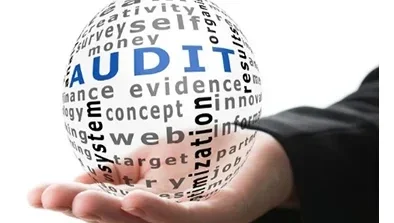Navigating the Evolving World of Audit and Assurance
The world of auditing is not what it used to be—it's faster, smarter, and more focused on risk and fraud than ever before. With new technologies and methodologies reshaping how audits are done, auditors and businesses alike need to stay informed. Whether
•
Oct. 22, 2024

The world of auditing is not what it used to be—it's faster, smarter, and more focused on risk and fraud than ever before. With new technologies and methodologies reshaping how audits are done, auditors and businesses alike need to stay informed. Whether you're working in audit or simply want to understand how these changes impact your company, let's break down some of the key areas to watch in 2024: risk-based auditing, forensic auditing, and maintaining audit quality.
- Risk-Based Auditing: The Future of Audit Methodology
Gone are the days when audits were a one-size-fits-all process. Now, it’s all about focusing on the areas of highest risk to deliver a more efficient and effective audit. Here's why risk-based auditing is taking center stage:
- Targeting High-Risk Areas: Instead of looking at everything equally, auditors are now using data and analytics to zero in on areas that pose the most significant risk to a business. This means audits can be tailored to each client’s specific risks—whether it’s compliance, financial reporting, or operational issues.
- Tech-Driven Audits: With artificial intelligence (AI) and advanced analytics, auditors can process vast amounts of data quickly and pinpoint potential issues early on. It’s not about replacing human judgment, but enhancing it with better insights. The result? Audits that are faster, more thorough, and more reliable.
- Forensic Auditing: Detecting Fraud and Financial Mismanagement
No business likes to think about fraud happening under their roof, but it’s a reality that can’t be ignored. That’s where forensic auditing comes in—using specialized techniques to identify financial mismanagement or fraud. Here’s what makes forensic auditing a crucial tool in today’s audit landscape:
- Following the Money: Forensic auditors dig deep into financial records to uncover any irregularities or red flags. This often involves tracking down missing money, identifying fake transactions, or even spotting unusual patterns in financial statements that could indicate fraud.
- Real-World Impact: From corporate scandals to small-business embezzlement, forensic auditors play a critical role in ensuring accountability. They help businesses protect themselves from financial harm by investigating and providing evidence that can stand up in court, if necessary.
- Preventive Techniques: While many forensic audits are reactive—occurring after fraud is suspected—there’s also a proactive side. Businesses can use forensic auditors to assess weaknesses in their financial controls, potentially preventing fraud before it happens.
- Quality Control: Ensuring High Standards in Auditing
In a field as complex as auditing, maintaining high-quality standards is not just important—it’s essential. Whether it's about compliance with new regulations or simply delivering the best possible audit, here are the key factors driving audit quality:
- Evolving Standards: Regulatory bodies like the PCAOB (Public Company Accounting Oversight Board) and IFAC (International Federation of Accountants) are continually updating audit standards. For auditors, staying up to date with these changes is a must to ensure compliance and meet client expectations.
- Continuous Improvement: Quality control isn’t a one-and-done process. Auditing firms have to constantly evaluate and update their processes to ensure they’re using the best techniques and adhering to the highest standards. This might involve implementing more rigorous peer reviews, improving auditor training, or adopting new technology to enhance audit quality.
- Client Trust: At the end of the day, the goal of quality control is to ensure clients can trust the results of their audit. Maintaining this trust means delivering thorough, accurate audits every time.
Final Thoughts
The world of audit and assurance is moving faster than ever, with risk-based auditing, forensic techniques, and quality control practices reshaping the field. Whether you're a business leader, finance professional, or just someone curious about how audits are evolving, these trends are shaping the future of how we ensure accountability and transparency in financial reporting.
Related

Ethics and Professional Standards: Navigating the Heart of the Accounting Profession
Ethical Dilemmas in Accounting: Walking the Tightrope Accountants often face situations where ethical and professional responsibilities can clash. These dilemmas test judgment, integrity, an...
Read more
Building a Sustainable Future: The Growing Role of ESG Reporting and Audits
Sustainability is no longer just a buzzword—it’s a business imperative. Companies are being held accountable not just for their financial performance but also for their impact on the planet, people...
Read more
Navigating Growth and Change: How Advisory Services Drive Business Success
In today’s fast-paced business environment, navigating complex decisions requires expertise, precision, and a clear understanding of financial strategy. Advisory services play a critical role in he...
Read more